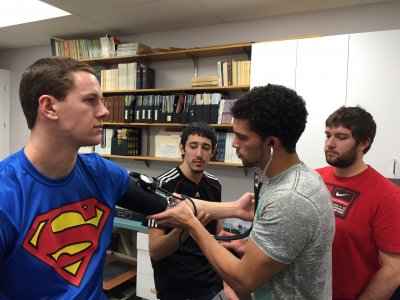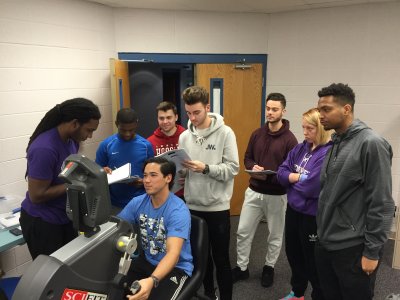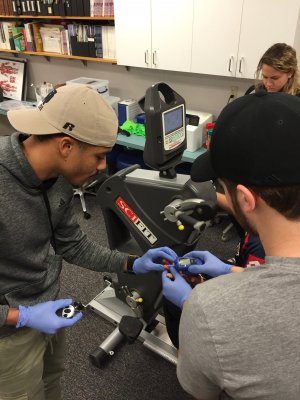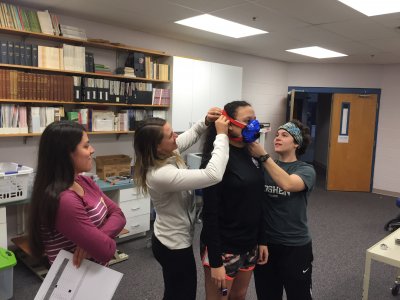Exercise Physiology
Exercise science majors studied responses and adaptations to exercise in lab experiences on and off campus this spring. We examined heart rate, blood pressure, oxygen consumption, ventilation and blood lactate among other variables while running, leg cycling and arm cycling. Understanding how the body responds to exercise and how it changes as a result of regular training are essential for optimal sport conditioning, however this application goes well beyond athletics. In depth knowledge in exercise science allows the personal training professional to design appropriate exercise programs for the health and wellness for individuals of all ages. People who have low cardiorespiratory fitness are at twice the risk of cardiovascular disease and death than their fit peers. Improving cardiorespiratory fitness even a little bit (1 MET) can decrease this risk (Kodama, et. al, 2009). Research has shown the importance of exercise in mitigating natural physical decline with aging. Life expectancy is increased and quality of life improved for those who engage in regular appropriate exercise.








